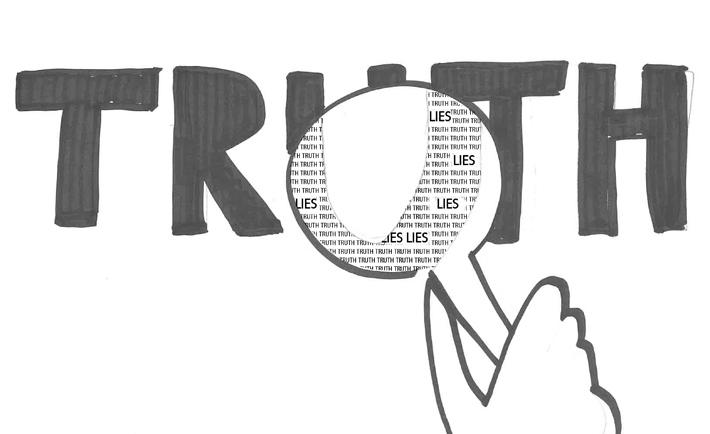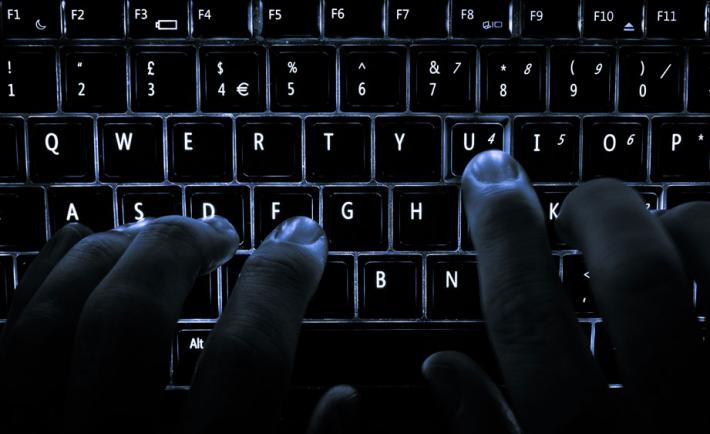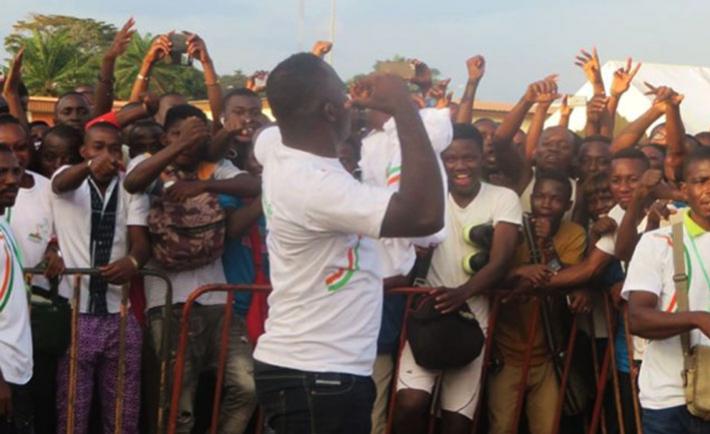Elections are one of the most critical elements of any democratic system, but also one of the moments where democracy is most vulnerable. Politicians compete to take control of the executive, become representatives in legislatures and sometimes appoint judges across branches of government, and the information environment plays a crucial role in the debates that decide who will represent the will of the people. This environment is increasingly mediated by the internet, through social media platforms, messaging apps, email and a wealth of new tools and applications that come online every day. Unfortunately, this new online environment is also increasingly polluted by disinformation.
All for One: Building Information Integrity into Elections
Using Open Data to Verify Information in Elections
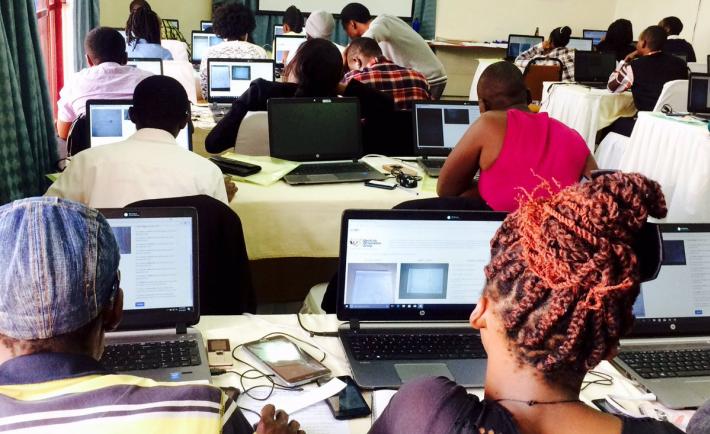
The Election Observation Group (ELOG) in Kenya used a unique data entry tool to match observer-captured images to official election documents
The August 2017 presidential election in Kenya was clouded by accusations of fraud and doubts about the accuracy of results posted on the Independent Elections and Boundary Committee (IEBC) website. Some groups alleged that information from the official polling-station-level presidential results forms (Form 34A) posted on the website may have been altered during the transmission of the forms from polling stations to the national level. The Kenyan Supreme Court’s ultimately annulled the August elections and called for a fresh presidential contest in October 2017. To promote accountability and transparency, NDI provided technical assistance to the Elections Observation Group (ELOG) to deploy 766 observers to polling stations across the country to systematically observe the fresh elections. Election observers were also instructed to take pictures of the completed Form 34As at their polling stations and send the images to the organization through designated WhatsApp numbers to verify the credibility of the data. Five-hundred and forty observers submitted clear photos of the Form 34As from the polling stations. With technical support from NDI, ELOG developed an online system to compare these forms with their official online counterpart.
A View from Election Eve in Liberia: Behind the Scenes of an International Election Observation Mission
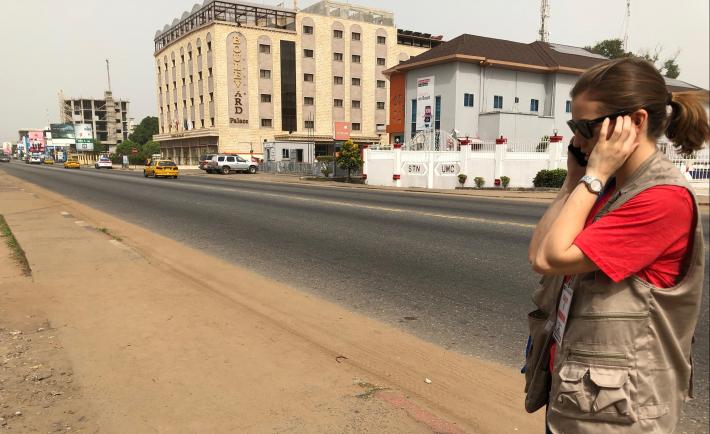
The author on Tubman Boulevard in Monrovia struggling to hear a call about logistics from fellow NDI staff while running other Election Day errands (photo credit: Madeline Wilson)
Two former presidents and a former foreign minister sat in a conference room while I searched for a hat. It sounds like the beginning of a bad joke, but it was the very real start to December 25, 2017, the eve of the Liberian presidential runoff.
International Electoral Espionage Is Political Warfare: It Violates Sovereignty and Human Rights
_0_1_0_0_0.jpg)
Photo credit: Ronile on Pixabay
International electoral espionage is bigger than one election, one person and one country. It is also bigger than elections themselves. It is a direct threat to our democracy and to other countries around the globe.
Why Cyber-Attacks Are Anything But a Taste of Our Own Medicine
Headlines are warning us about Russian “mischief” in the U.S. elections. The U.S. Department of Homeland Security and the Director of National Intelligence have said they are confident that the Russian government is behind hacks into US email accounts and that cyber-probes of some state election systems may also be traced to Russia. A group of prominent national security and defense experts has predicted that Russian hackers will use the stolen emails to build credibility, then leak fake documents in order to manipulate voters’ opinions and, possibly, choices at the ballot box. These cyber-espionage and disinformation campaigns sound like the stuff of spy novels, except they’re real. What’s going on?
Three Lessons Côte d’Ivoire Can Teach Us About Peaceful Elections
Democratic elections resolve a legitimate competition for power through peaceful, rather than violent, means. They constitute a critical moment in the life of a democracy, where citizens have the right to express their will through the ballot box and a peaceful transfer of power takes place. However, this is not always the case. During the 2010 elections in Côte d’Ivoire – the country’s first election in 10 years – former President Laurent Gbagbo refused to step down after narrowly losing in a run-off to Alassane Ouattara, triggering widespread violence that left over 3,000 people dead and thousands displaced. To mitigate the potential for violence as the 2015 presidential election approached, NDI assisted civil society organizations to monitor the elections, draft Codes of Conduct and spread messages promoting nonviolent conflict resolution.
From Election Observation to Government Oversight: What’s Next for Guatemala?
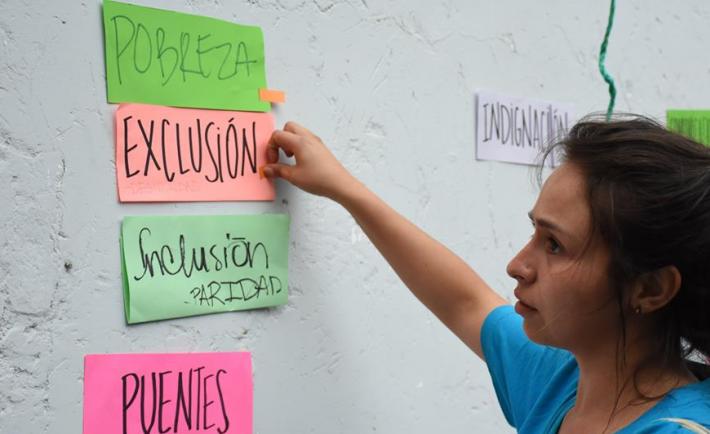
A young Guatemalan woman participates in an activity organized by civil society to reflect on the political crisis and future priorities. Credit: Pamela Saravia
As this blog series has highlighted, the 2015 Guatemalan elections were unique in many regards. Citizen protests resulted in the resignation and arrest of the president and vice president on corruption charges. Voter turnout was the highest since the return to democracy in Guatemala. The presumptive winner, the runner-up in elections four years earlier who was leading in the polls, failed to make it to the second round. And electoral violence was lower than expected and lower than during recent electoral processes. The question then becomes, what’s next for Guatemala?
Indigenous Guatemalans Call for Meaningful Representation
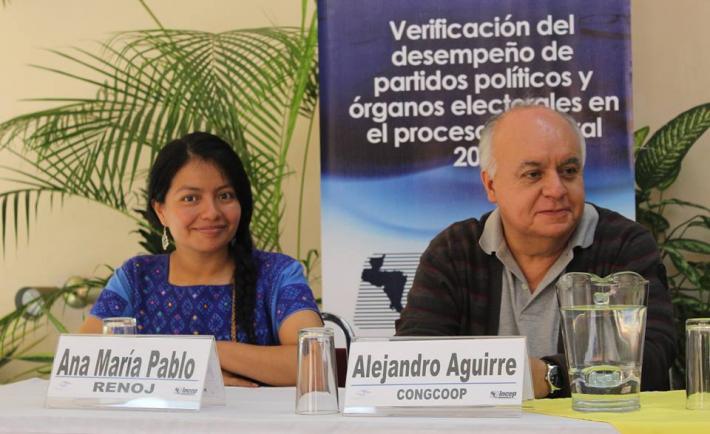
Anixh Ana María Pablo Tercero prepares to present election observation results at a press conference.
Large numbers of Guatemalan citizens are excluded from political life. Indigenous communities are among the most marginalized, as they face both institutional and cultural barriers in the country’s political system. Since the 2006 electoral reforms and during the subsequent three elections, Guatemala has seen important steps forward in terms of increased political participation; however, challenges remain in translating participation into meaningful representation.
What Became of the People Power Revolution? Observations and Impressions of Philippines Elections 1986 and Now
---day-before-elections.png)
Larry Garber meeting with Jose Concepcion Jr, the first chair of NAMFREL on the day before the 2016 Philippines elections
The 1986 Philippines snap presidential election serves as a lodestar for international democratic activists who came of age professionally during the 1980s. The successful People Power Revolution demonstrated the role that electoral participation could play in mobilizing a population to reject a fraudulent process and to overthrow a dictator. And it introduced the international community to such concepts as “domestic election monitoring” and “parallel vote tabulations,” which are now core components of the menu used by democracy promoters around the globe. Indeed, since 1986, Filipino activists have frequently been called upon to share their experiences with those contemplating how best to challenge entrenched authoritarian regimes. I observed these developments in the Philippines first-hand.
Observation Network Unites to Improve the Transparency of Guatemalan Elections
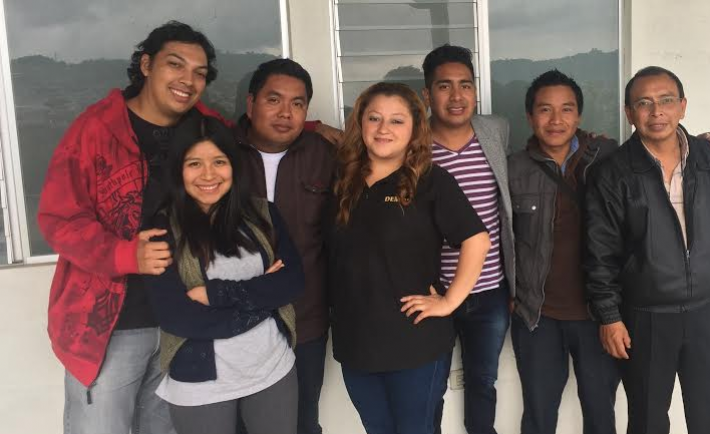
Members of the DEMOS network. Left to right: Jorge Barriento, Aracsala Chang, Orlando Cun, Yesica Hernandez, Fredy Sitavi, Jose Cuxil, and Ronald Baldomiro.
For Yesica Hernández, an observer from Quetzaltenango, playing an active role in political life in her country is a civic obligation. At just 24 years old, Yesica has worked with the Central American Institute for the Study of Social Democracy (DEMOS) for nearly five years and already observed two elections. She sees election observation as critical to involving citizens, especially youth, in politics and holding political parties and politicians accountable to the public.

